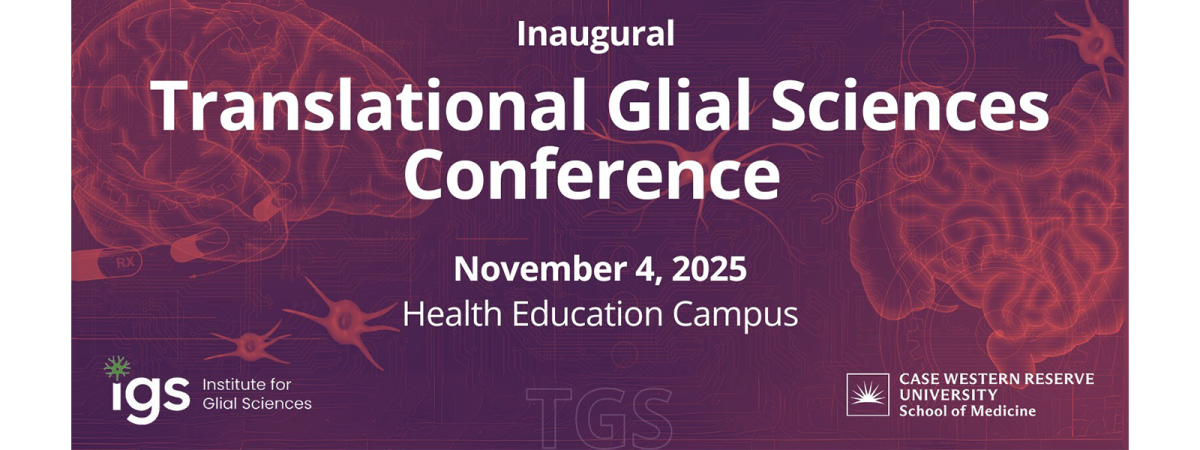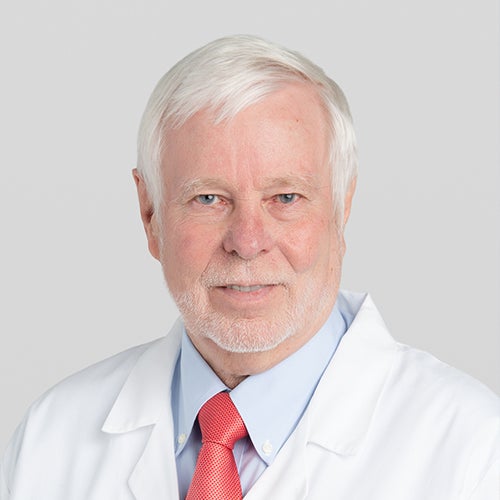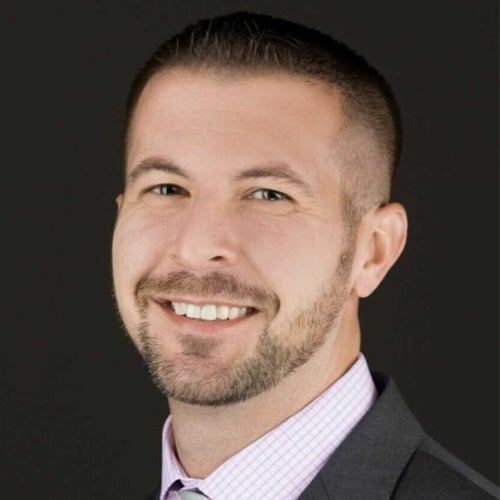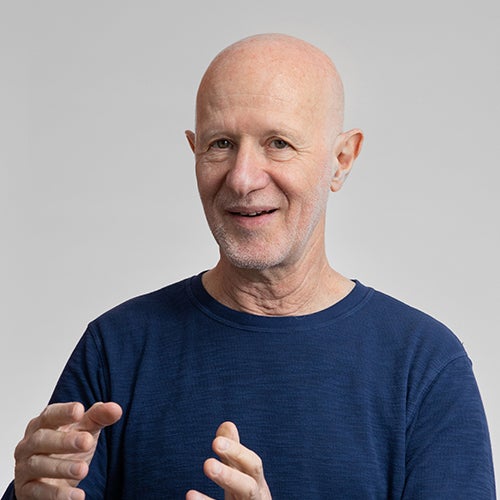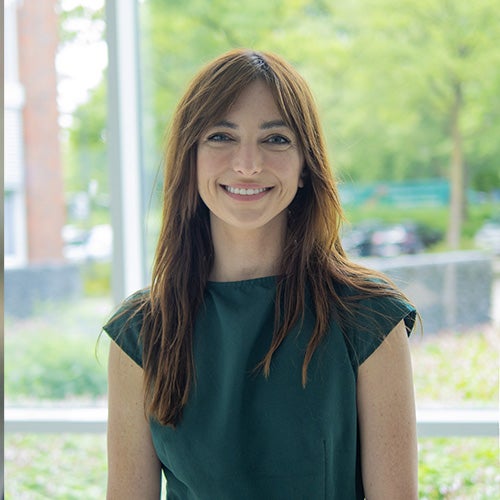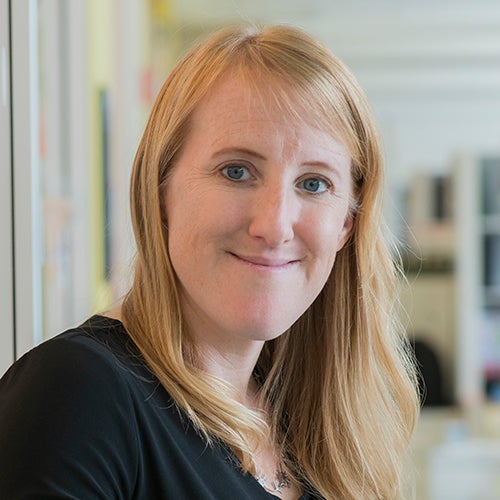Lorenz Studer, MD
Memorial Sloan Kettering Cancer Center
Keynote Speaker
Lorenz Studer, M.D. is the founder and Director of the Center for Stem Cell Biology at Memorial Sloan Kettering Cancer Center. He is a leader in regenerative medicine and stem cell–based models of neurodegenerative and neurodevelopmental diseases. Recent awards recognizing Dr. Studer’s work include a MacArthur Fellowship, the Ogawa-Yamanaka Prize and the Jacob Heskel Gabbay Award in Biotechnology and Medicine. Lab website: https://www.mskcc.org/research/ski/labs/lorenz-studer
Bruce Trapp, PhD
Cleveland Clinic
Plenary Speaker
Bruce Trapp is Chairman of the Department of Neurosciences at the Cleveland Clinic, and Professor of Neurosciences at Case Western Reserve University and The Ohio State University. He holds The Morris R. and Ruth V. Graham Endowed Chair in Biomedical Research.
Dr. Trapp received his PhD from Loyola University Stritch School of Medicine in Chicago, IL, followed by postdoctoral training at the National Institute of Neurological Disorders and Stroke (NINDS), NIH. He later held faculty positions at Johns Hopkins University School of Medicine before joining Cleveland Clinic as Chair of Neurosciences in 1994.
His work has earned him awards including the Jordi Folch-Pi Award, Weil Award, Harry Weaver Neuroscience Scholar Award, Jacob Javits Award, John Dystel Prize, and the Stephen C. Reingold Research Award. He is also a Fellow of the AAAS and serves on advisory boards for the NMSS and NIH.
Dr. Trapp’s lab investigates mechanisms of neurodegeneration and repair in multiple sclerosis. His research spans the molecular biology of myelination and remyelination, glial neuroprotection, and the causes of neurological disability. He has published over 275 peer-reviewed articles and 40 book chapters, supported by long-standing funding from the NIH and other agencies.
Paul Tesar, PhD
Institute for Glial Sciences, Case Western Reserve University
Paul Tesar is the founder and Director of the Institute for Glial Sciences at Case Western Reserve University School of Medicine. He was born and raised in Cleveland, Ohio and received his undergraduate degree in Biology from Case Western Reserve University. Paul went on to earn his DPhil (PhD) from the University of Oxford as a recipient of a scholarship from the National Institutes of Health. During his doctoral studies, he discovered epiblast stem cells, providing the field with an entirely new tool for studying pluripotency and differentiation.
Paul is currently the Dr. Donald and Ruth Weber Goodman Professor of Innovative Therapeutics in the Department of Genetics and Genome Sciences at Case Western Reserve University School of Medicine. His laboratory has pioneered new glial cell–focused approaches to understand and treat multiple sclerosis, pediatric leukodystrophies, and other neurodegenerative diseases.
He was honored as a New York Stem Cell Foundation – Robertson Investigator in 2011 and received the Outstanding Young Investigator Award from the International Society for Stem Cell Research in 2015. He was also the recipient of the New York Stem Cell Foundation – Robertson Stem Cell Prize in 2017. In 2019, Paul was recognized as one of Crain’s Cleveland Business’ “Forty Under 40” and named a “HomeGrown Hero” in Academic Research by Cleveland.com/The Plain Dealer. In addition to these honors, Paul is an elected senior member of the National Academy of Inventors and has earned the NIH Landis Award for Outstanding Mentoring.
Outside of the lab, Paul is the co-founder of Convelo Therapeutics, a Cleveland-based biotechnology company focused on remyelination medicines. Central to Paul’s work is a commitment to elevating science education and giving back to the greater Cleveland community through a non-profit that he co-founded called Rise Up Northeast Ohio.
Raeka Aiyar, PhD
Institute for Glial Sciences, Case Western Reserve University
Raeka Aiyar, Ph.D., is the Executive Director of the Institute for Glial Sciences (IGS) at Case Western Reserve University. She is a molecular biologist turned science communicator and ambassador, with 15 years of experience in disseminating biomedical research to diverse audiences. From her training at the University of Waterloo, Canada, to her Ph.D. from the European Molecular Biology Laboratory (EMBL) in Germany, to over a decade of leadership at nonprofit and academic institutions in the United States, she has driven scientific progress by building bridges across disciplines and communities.
Dr. Aiyar’s scientific background spans various areas of biomedical research characterized by emerging technologies and collaborative efforts. After her B.Sc. in genetics and bioinformatics at the University of Waterloo, she spent her Ph.D. studies developing and applying genomic technologies to discover new therapeutic strategies for mitochondrial disorders. As Director of Communications and Development at the Stanford Genome Technology Center working with Ronald Davis, she led fundraising and scientific strategy for programs in diagnostics, chronic fatigue syndrome, synthetic biology, and precision medicine — as well as support for these programs via patient engagement, conference organization, and consortium building.
For 7 years as Vice President of Scientific Outreach at The New York Stem Cell Foundation, she led scientific communications, content development, grant strategies, and event programming for scientists and the public, forging new partnerships in stem cell technology, regenerative medicine, and disease modeling that grew all of these areas.
Dr. Aiyar has organized over 100 scientific events and moderated nearly 50 panel discussions on key challenges in science that have reached thousands worldwide. She has helped raise over $50M in grant funding for biomedical research. As a passionate advocate for improving the way science is done in engagement with patient and public communities, she has spearheaded numerous efforts across communications, events, health equity research, and grantmaking to build awareness, promote dialogue, and challenge the status quo. As IGS’ new Executive Director, she leads the Institute’s external engagement, communications, events, and partnerships.
Allison Bradbury, PhD
Nationwide Children’s Hospital / The Ohio State University
Allison M. Bradbury, MS, PhD is an Associate Professor with Tenure in the Department of Pediatrics at The Ohio State University and Principal Investigator in the Center for Gene Therapy at Nationwide Children’s Hospital. She leads a R01-funded translational laboratory with the goal of improving the understanding of disease mechanisms resulting in rare pediatric neurologic disorders to develop safe and efficacious targeted gene therapy approaches.
Dr. Bradbury earned her PhD in Biomedical Sciences from Auburn University and subsequently completed a NIH NRSA Postdoctoral Research Fellowship at the University of Pennsylvania. The acmes of her training career include the completion of preclinical studies that resulted in adeno-associated virus (AAV)-mediated gene therapy clinical trials for GM2 gangliosidosis and Krabbe disease. She received the NIH K99/R00 Pathway to Independence award and joined the faculty at The Ohio State University and Nationwide Children’s Hospital in 2020. In her independent laboratory, Dr. Bradbury continues to optimize and translate next generation gene therapies for rare pediatric neurologic disorders.
Dr. Bradbury is also committed to training the next generation of promising basic and translational gene therapy researchers and strives for her laboratory to be an active and engaging environment for trainees to develop proficient laboratory and essential professional development skills. As such she currently serves as a Co-Sponsor on a NRSA F32; Sponsor on a NIH F99/K00 Predoctoral to Postdoctoral Award; mentors an OSU Presidential Fellow; serves on numerous graduate committees; and serves on the Graduate Studies Committee for the Molecular, Cellular, and Developmental Biology Graduate Program at The Ohio State University.
Dr. Bradbury is passionate about the national interests surrounding rare diseases. She served a two-year term (2023–2025) as the Chair of the Patient Outreach Committee for the American Society of Gene and Cell Therapy and now is a member of the ASGCT Board of Directors.
Ben Clayton, PhD
Institute for Glial Sciences, Case Western Reserve University
Originally from Salt Lake City, Utah, Ben holds a biology degree from the University of Utah where he began his scientific career working with Dr. Kurt Albertine to explore the effect of premature birth on glia using preterm sheep as a model. Ben then completed his graduate studies working with Dr. Brian Popko at The University of Chicago. As a graduate student, Ben’s research focused on exploring the role of the integrated stress response in hypoxic injury to glial cells during development.
Ben then moved to Case to train as a postdoctoral fellow with Dr. Paul Tesar, where he established a phenotypic screening platform for identifying small-molecule suppressors of pathological reactive astrocyte states. Ben joined the Department of Genetics and Genome Sciences at Case Western Reserve University as an Assistant Professor in June 2024 and is a founding member of the Institute for Glial Sciences.
In his own lab, Ben aims to further reveal mechanisms of glial cell pathology in neurodegenerative diseases in order to identify and develop glial-targeted medicines. To support these goals, Ben currently holds a Career Transition Award from the National Multiple Sclerosis Society, along with grants from the Cleveland Alzheimer’s Disease Research Center, the American Parkinson Disease Association, and the Case-Coulter Translational Research Partnership.
Stanton L. Gerson, MD
Case Western Reserve University School of Medicine
A renowned physician and cancer researcher, Stanton Gerson, MD, is dean for Case Western Reserve University (CWRU) School of Medicine and senior vice president for medical affairs. In addition to the School of Medicine faculty and staff, he has oversight of all appointed faculty who are located at University Hospitals Cleveland Medical Center, Cleveland Clinic, MetroHealth System, and Veterans Affairs Northeast Ohio Healthcare System.
He is the Asa and Patricia Shiverick–Jane Shiverick (Tripp) Professor of Hematological Oncology and Case Western Reserve University Distinguished University Professor (Class of 2013). In 2012, he was the recipient of the Case Western Reserve Medal for Excellence in Health Science Innovation, the highest honor bestowed by the School of Medicine to those advancing research, education and health care.
Dean Gerson’s research is focused on DNA repair mechanisms and their potential as targets for anti-cancer therapy, stem cell biology and use of stem cells in multiple therapies, and development of early-phase clinical trials for cancer. He also developed the no-blood-no-drug policy (requiring a weekly blood count) that resulted in Sandoz Pharmaceuticals' receipt of FDA approval for Clozapine, an effective anti-psychosis drug that caused life-threatening agranulocytosis as a side effect.
He became a member of the new NCI-designated cancer center at CWRU in 1987, and in 2004, he became director of the Case Comprehensive Cancer Center and successfully re-competed for the center’s NCI designation in 2004, 2007, 2012, and 2017. He served as director of Seidman Cancer Center at University Hospitals from 2004 to 2017. He has served as advisor for many of the top NCI-designated cancer centers in the country and was President of the Association of American Cancer Institutes from 2017 to 2019. He was active in the Cancer Moonshot initiative and the Biden Cancer Initiative, and co-authored a white paper from that group: Future Cancer Research Priorities (Lancet, 2017).
Tyler Miller, MD, PhD
Case Western Reserve University School of Medicine / University Hospitals
Tyler Miller, M.D., Ph.D., is the Paul and Betsy Shiverick Professor of Immuno-Oncology, Assistant Professor in Pathology, and a physician-scientist at Case Western Reserve University School of Medicine and University Hospitals. He is also an affiliate faculty member of the Institute for Glial Sciences. Clinically, he is a Molecular Pathologist focused on interpreting the genomic characteristics of patients’ tumors. However, 80 percent of his time is dedicated to running his research laboratory, which seeks to create effective immunotherapies for brain tumor patients.
Over the last 16 years, Dr. Miller has used leading technologies to study the epigenetic control of cell states in solid tumors and how to target this control to treat cancer. His first project, and subsequent first lead-author manuscript in 2008, used microRNA microarrays to discover microRNAs that controlled the tamoxifen-resistant state in breast cancer cells. During his PhD thesis work, he led the development of a novel in vivo functional screen to demonstrate an in vivo-specific dependence on transcription pause-release and elongation factors in glioblastoma, identifying these factors as therapeutic targets.
Dr. Miller is now leveraging these experiences to harness the power of the immune system to treat glioblastoma. The heterogeneity of glioblastoma renders targeted therapies ineffective, and traditional chemotherapies have failed patients. Glioblastoma tumors contain massive numbers of tumor-associated myeloid cells that suppress immune responses due to their dysfunctional states. This presents an opportunity to use his expertise in studying cell state, modeling cancer, and developing new technologies to identify ways to reprogram these immune cells.
He recently led an effort to comprehensively profile tumor-associated myeloid cells in glioma and identify potential targeting strategies. This work produced foundational datasets and functional human models that his lab is now building on to validate lead strategies for clinical translation. These include creating myeloid targeting strategies that can be combined with immunotherapies, such as CAR-T cells. His lab is also improving functional model systems, uncovering the function of immune cell programs and interactions in glioma, and developing technologies to study these interactions with single-cell resolution at scale — all with the goal of creating effective immunotherapies for brain tumor patients.
Dimitry Ofengeim, PhD
Sanofi
Dimitry Ofengeim, Ph.D., is the head of Precision Neurology and Neuroinflammation in the Neuroscience Research Therapeutic Area at Sanofi, based in Cambridge, MA. He leads a team of scientists focused on understanding the role of neuroinflammation and the CNS innate immune system in multiple sclerosis, Alzheimer’s disease, and other neurodegenerative diseases.
Dr. Ofengeim is an expert in mechanisms of acute and chronic neurodegeneration, with a particular focus on the interplay between cell death and inflammation in the central nervous system. His research was among the first to demonstrate that a novel form of cell death, known as necroptosis, occurs in neurodegenerative diseases including MS, ALS, and Alzheimer’s disease. His recent work has advanced understanding of disease-associated microglial states and their functional roles in CNS pathology.
Before joining Sanofi, Dr. Ofengeim worked at Biogen for two years within the ALS and MS research groups. During his training at Harvard, he received several fellowships from the National MS Society, including both a postdoctoral fellowship and a career transition award, supporting his growing leadership in neuroinflammatory research.
Richard Ransohoff, MD
Third Rock Ventures
Richard M. Ransohoff is presently (since January 2018) Venture Partner at Third Rock Ventures. At Third Rock, he focuses on company creation targeting serious unmet medical needs in neurology, immunology, and neuropsychiatry. He is a scientific Co-Founder of Abata Therapeutics, where he served for two years as interim Chief Medical Officer and Executive Leadership Team member, and now continues as Clinical Advisor. He also helped launch Trace Neuroscience and serves on its Scientific Advisory Board.
From 1984 to 2014, Dr. Ransohoff was a Staff Member at the Cleveland Clinic, where he founded and directed the Neuroinflammation Research Center (2005–2014) in the Lerner Research Institute. He also served as a Staff Neurologist at the Cleveland Clinic Mellen Center for MS Treatment and Research. With over 460 scientific articles and reviews in PubMed (H-index 151; >115,000 citations as of September 2025), he has trained more than 70 students and post-docs now active in science, medicine, and industry.
Dr. Ransohoff serves on the Scientific Advisory Boards of the Keystone Symposia and the American Academy of Neurology / American Brain Foundation. He previously held advisory roles with Chemocentryx, Vertex, LeukoSite, the German Center for Research in Neurodegenerative Disease (DZNE), and the Gladstone Institute for Neurological Diseases at UCSF. He has served on numerous NIH and National MS Society study sections and Special Emphasis Panels.
He was Associate Editor of Neurology for inflammatory and infectious conditions for 10 years before founding Neurology: Neuroimmunology and Neuroinflammation. He continues to serve on the editorial boards of Trends in Immunology, Trends in Molecular Medicine (through 2024), and the Journal of Neuroimmunology. He also holds adjunct faculty appointments in Molecular Medicine, Genetics and Genome Sciences, and Pathology at Case Western Reserve University School of Medicine and the Cleveland Clinic Lerner College of Medicine.
In 2014, Dr. Ransohoff joined Biogen as Senior Research Fellow and later became VP and Research/Early Development Unit Head for Neuroimmunology & MS/Pain/Acute Neurology. There, he led a team of more than 45 scientists and clinicians in advancing neuroinflammatory targets from discovery through phase II proof of concept. He successfully brought five compounds into the clinic and led programs addressing blood-brain barrier function, PML risk mitigation, and novel glial target screening technologies.
Marissa Scavuzzo, PhD
Institute for Glial Sciences, Case Western Reserve University
Dr. Marissa Scavuzzo is a neuroscientist and founding member of the Institute for Glial Sciences at Case Western Reserve University. Her laboratory investigates the diverse roles of enteric glia—an essential but understudied glial population of the nervous system in the gut—to uncover how these cells sense, adapt, and coordinate intestinal physiology. By integrating single-cell and spatial genomics with new stem cell–derived and in vivo models, her team defines how glial subtypes maintain tissue homeostasis and respond to mechanical, metabolic, and immune challenges.
Dr. Scavuzzo’s work revealed, for the first time, that the healthy gut contains functionally specialized subtypes of glia, establishing a foundation for understanding how distinct glial populations contribute to gastrointestinal health and physiology. Her research program now integrates cellular, molecular, and systems-level approaches to define how enteric glia function to preserve tissue integrity and physiology. Her lab continues to develop and apply new genetic and stem cell–based technologies to interrogate glial function within complex tissues and human models.
Her scientific contributions have been recognized with honors including the HHMI Hanna H. Gray Fellowship, the NYSCF Druckenmiller Fellowship, the Hartwell Biomedical Research Award, and the Eppendorf & Science Prize for Neurobiology. A committed advocate for open and collaborative science, Dr. Scavuzzo promotes the sharing of data and technology to accelerate discovery. She is also co-founder of Rise Up: Northeast Ohio, a nonprofit that connects scientists with Cleveland public schools to promote equitable access to science education.
Tracy Young-Pearse, PhD
Harvard Medical School / Brigham & Women’s Hospital
Tracy Young-Pearse is an Associate Professor in Neurology at Harvard Medical School and the Dennis J. Selkoe Distinguished Chair in Neurology. She received her undergraduate degree from Skidmore College and then entered the Biomedical and Biological Sciences program at Harvard Medical School, where she earned her Ph.D. in Genetics under the mentorship of Connie Cepko.
She established her independent lab in 2010 in the Ann Romney Center for Neurological Diseases, which focuses on identifying the mechanistic causes of neurodegenerative and developmental disorders of the nervous system, with the ultimate goal of identifying novel therapeutic targets. Her lab uses human stem cells, rodent models, and primary human tissues to study the impact of genetic risk and resilience factors on brain cell biology.
Tracy is a member of the FNIH-funded Accelerating Medicines Partnership Program for Alzheimer's Disease (AMP-AD), participating since its launch in 2014. In 2025, she was awarded the Alzheimer’s Association Zenith Award. That same year, she received the Harvard Medical School A. Clifford Barger Award for Excellence in Mentoring, recognizing her commitment to training postdoctoral fellows and graduate and undergraduate thesis students.
Her lab is currently leading a new NIH U54-funded consortium to develop and test new platforms for interrogating person-specific responsiveness to therapeutics for Alzheimer’s disease using human microphysiological systems.


